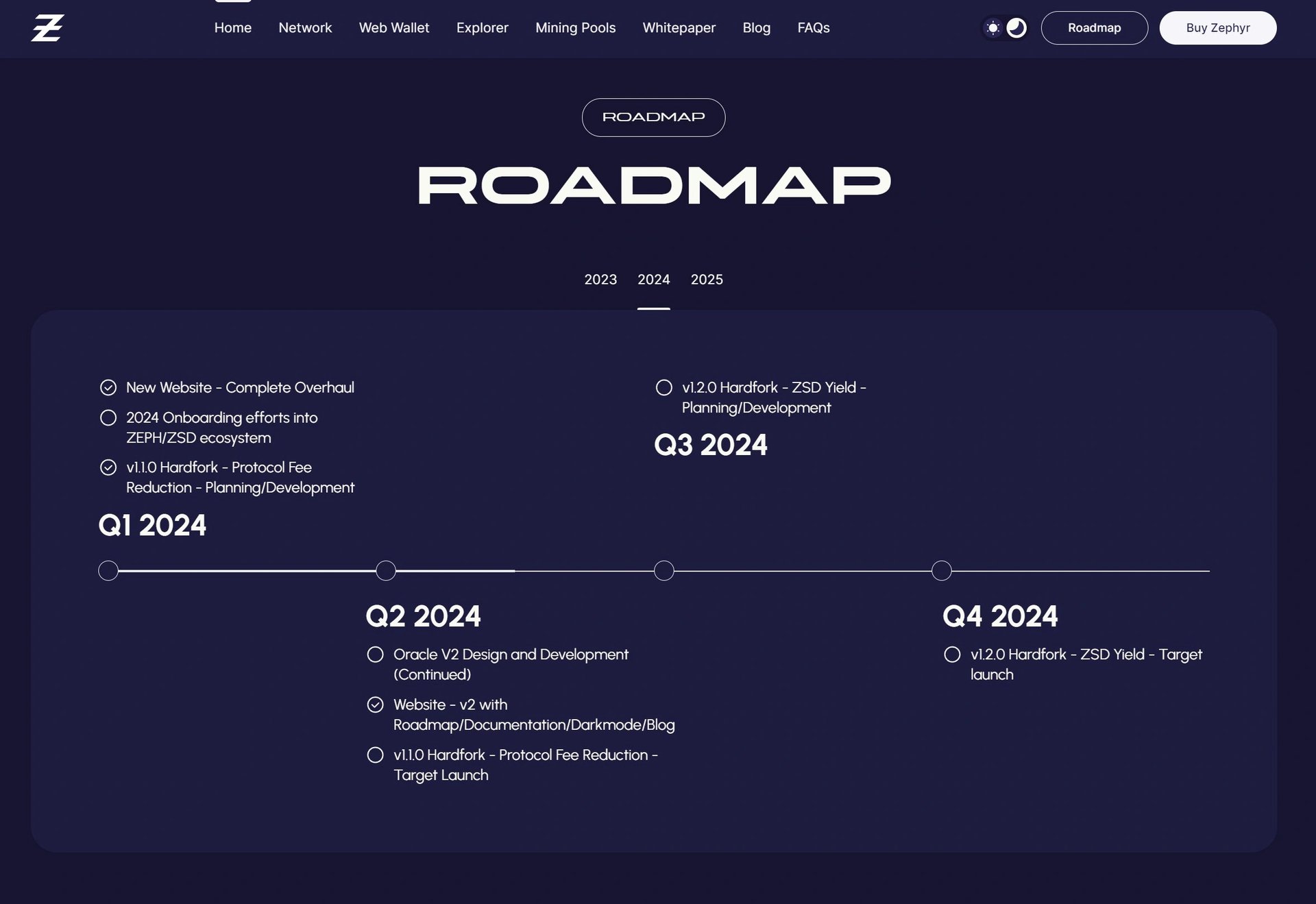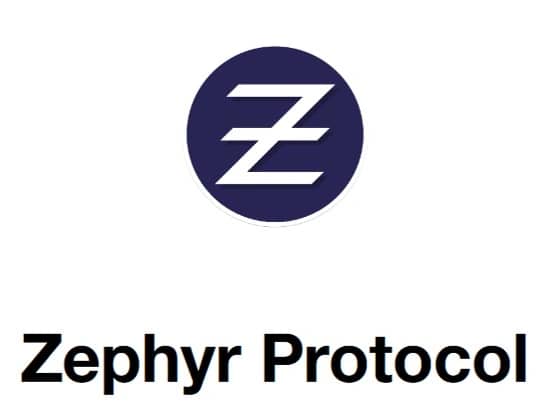Subscribe to wiki
Share wiki
Bookmark
Zephyr Protocol (ZRS)
We've just announced IQ AI.
Zephyr Protocol (ZRS)
Zephyr Protocol is an innovative blockchain-based decentralized finance (DeFi) project inspired by the Djed Protocol. It offers an untraceable, over-collateralized, crypto-backed stablecoin protocol. It uniquely combines Monero’s privacy features with the stability mechanisms of the Djed protocol, focusing on anonymity and financial stability. Zephyr Protocol was launched on May 29, 2023, and it has three core assets: $ZEPH, $ZSD, and $ZRS. This enables Zephyr Protocol to give rise to the world’s first over-collateralized, private, crypto-backed stablecoin. [1]
Overview
The Zephyr Protocol is not just another cryptocurrency; it's a cutting-edge innovation that redefines the realm of digital assets. It's a stablecoin ecosystem that stands out for its emphasis on privacy and decentralization, making it a fascinating development in cryptocurrency. [2]
The Zephyr Protocol operates on a three-asset model, which includes ZEPH, ZSD, and Zephyr Reserve Shares (ZRS). ZEPH serves as the foundational asset within the protocol, acting as collateral for minting ZSD and ZRS. ZEPH model ensures that the stablecoin has a robust backing, enhancing its stability and reliability. The ZSD, as previously mentioned, is the stablecoin that aims to provide a private and stable medium of exchange for users. ZRS, on the other hand, represents a share in the protocol's reserve, allowing holders to benefit from the reserve's excess equity, a unique advantage that sets the Zephyr Protocol apart.[3]
Zephyr Protocol's over-collateralization mechanism is a key feature that ensures the security and stability of ZSD. This mechanism ensures that ZSD is backed by a minimum of 400% of its value in ZEPH at the time of minting. This stringent measure significantly reduces the risk of volatility and devaluation, providing users with a secure and stable asset. Furthermore, the protocol offers a variety of incentives for reserve providers, including leveraged positions, fee collection from minting and redeeming actions, and benefits from price deviations and block rewards. These incentives are strategically designed to encourage participation and investment in the protocol, thereby enhancing its stability and growth potential.[4]
The Zephyr Protocol is decentralized, meaning no single entity controls it. Zephyr Stable Dollars ($ZSD) are backed by an in-protocol reserve of Zephyr ($ZEPH) rather than by any centralized authority or stored in any wallet. This is a stark contrast to traditional fiat-backed stablecoins, which are issued by a centralized authority with collateral stored opaquely, contradicting the principles and ideals of cryptocurrency.
Roadmap
Q1 2023
- Mainnet Launch
- Initial Listings
- Whitepaper
- Private v1 Testnet
Q2 2023
- Public v1 Testnet
- New GUI Wallets
- MEXC Listing
- Branding
Q3 2023
- Joined Djed Alliance
- V1 Hardfork
- ZSD Markets
- Web Wallet
Q4 2023
- Extended DJED research
- Oracle V2 Design and Development Begins
Q1 2024

- New Website - Complete Overhaul
- 2024 Onboarding efforts into ZEPH/ZSD ecosystem
- v1.1.0 Hardfork - Protocol Fee Reduction - Planning/Development
Q2 2024
- Oracle V2 Design and Development (Continued)
- Website - v2 with Roadmap/Documentation/Darkmode/Blog
- v1.1.0 Hardfork - Protocol Fee Reduction - Target Launch
Q3 2024
- v1.2.0 Hardfork - ZSD Yield - Planning/Development
Q4 2024
- v1.2.0 Hardfork - ZSD Yield - Target launch
Q1 2025
See something wrong?
